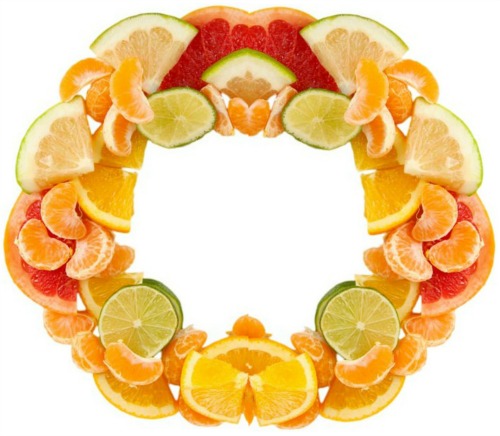Diet and Cancer Prevention
Diet and cancer are related in that a healthy diet can decrease your risk for cancer. A healthy diet should be high in vegetables, fiber, and low in fat. Thus healthy eating can significantly decrease your risk for cancer. The American Cancer Society estimates that one-third of all cancers in the United States are related to nutritional healthy diet.
Best Foods for Cancer Prevention
A healthy diet should be high in fruits and vegetables, high in fiber, and low in fat- particularly from animal sources.
Cruciferous vegetables, tea, soy products, calcium, and omega 3 fatty acids are encouraged. Protein intake should be kept within the recommended nutrient guidelines. If alcohol is used, it should be in moderation. Obesity should be avoided.
Green and dark yellow vegetables, cruciferous vegetables (cauliflower, broccoli, cabbage, brussels sprouts and kohlrabi) and beans (legumes) seem to protect against cancer. Foliate, naturally in dark green leafy vegetables, dried beans and orange juice, may reduce the risk of colon and cervical cancer. Brightly colored fruits and vegetables also contain carotenoids and vitamin C.
Lycopene, one of the many carotenoiods has been linked to lower risk of cancers of the prostate, colon, and cervix. Lycopene is especially abundant in cooked tomato products.
Antioxidants and Cancer Prevention
Diet and cancer prevention researchers believe the antioxidant effect of vitamins and the mineral selenium help protect the body’s oxygen free radicals. During normal metabolism most of the oxygen in the human body is concerted into stable forms of carbon dioxide and water.
A small amount, however, ends up in an unstable form known as “oxygen free radicals” which are thought to attack and damage the cell membrane and DNA leading to the formation of cancer. Antioxidants are thought to absorb free radicals before they can cause damage and also interrupt the sequence of reaction once damage has began.
A promising horizon in cancer prevention is the discovery of photochemical. These compounds found in abundance in fruits and vegetables, seem to prevent cancer by blocking the formation of cancerous tumors and disrupting the process at almost every step of the way. Photochemical exert their protective action in all of the following ways.
- Removing carcinogens from cells before they cause damage
- Activating enzymes that detoxify cancer-causing agents
- Keeping carcinogens from locking onto cells
- Preventing carcinogens from binding to DNA
- Breaking up cancer-causing precursors to benign forms
- Disrupting the chemical combination of cell molecules that can produce carnage
- Keeping small tumors from accessing capillaries (small blood vessels) to get oxygen and nutrients.
Fiber Diet and Cancer Prevention
Although one recent study failed to show an association, many studies have linked low intake of fiber to increased risk for colon cancer. Fiber binds to bile acids in the intestine for excretion from the body in the stools.
Daily consumption of 25 (women) to 38 (men) grams of fiber is recommended. Grains are high in fiber and contain vitamins and minerals (foliate, selenium, and calcium) which seem to decrease the risk for colon cancer. Selenium also protects against prostate cancer and possibly, lung cancer.
Calcium may also protect against colon cancer by preventing rapid growth of cells in the colon, especially in people with colon polyps. Polyphones (photochemical) are potential cancer-fighting antioxidants in fresh fruits and vegetables, many grains, and regular teas. Green, black and red tea all appear to provide protection. Evidence also points to certain components in tea that can block the spread of cancers to other parts of the body.
Polyphones are known to block the formation of nitrosamines and quell the activation of carcinogens. Both green and black tea has similar amounts of polyphones.
Polyphones are also thought to fight cancer by shutting off the formation of cancer cells, turning up the body’s natural detoxification defenses and thereby suppressing progression of the disease.
Green Tea and Cancer Prevention
Diet and cancer studies records that green tea seems to be especially helpful in preventing gastrointestinal cancers, including those of the stomach. Small intestines, pancreases and colon. Consumption of green tea also has been linked to a lower incidence of lung, esophageal, and estrogen-related cancers, including most breast cancers.
Research on tea-drinking habits showed that people who regularly drank green tea had about half the risk for chronic gastritis and stomach cancer. The data also showed that the risk further decreased as years of green tea drinking increased.
The antioxidant effect of one of the polyphones in green teaor egg, is at least 25 times more effective than vitamin E and 100 times more effective than vitamin C at protecting cells and the DNA from damage believed to cause cancer, heart disease, and other diseases associated with free radicals.
Egg is also twice as strong as the red wine antioxidant resveratrol in helping prevent heart disease. Other research indicates that photochemical in green tea induce cancer cells to self-destruct.
Diet and cancer research recommends drinking more cups of green tea daily. Herbal teas do not provide the same benefits as regular tea.
Vitamin C and Cancer Prevention
Foods high in vitamin C may deter some cancers. Salt-cured, smoked and nitrite-cured foods have been associated with cancer of the esophagus and stomach. proceed meat should be consumed sparingly and always with orange juice or other vitamin C-rich foods.
Vitamin C seems to discourage the formation of nitrosamines. These potentially cancer-causing compounds are formed when nitrates and nitrites, which are used to prevent the growth of harmful bacteria in processed meats, combine with other chemicals in the stomach.
Diet and cancer studies also discourage excessive intake of protein. The daily protein intake for some people is almost twice the amount the human body needs. Too much animal protein seems to decrease blood enzymes that prevent precancerous cells from developing into tumors.
Diet and cancer research also suggests that grilling protein (fat or lean) at high temperatures for a long time increases the formation of carcinogenic substances in the skin or surface of the meat.
Microwaving the meat for a couple of minutes before barbecuing decreases the risk as long as the fluid released by the meat is discarded. Most of the potential carcinogens collect in this solution. Removing the skin before serving and cooking at lower heat to ‘medium’ rather than ‘well done’ also seem to lower the risk.
Low Fat Food
High fat intake may promote cancer and excessive weight. Some experts actually recommend that total fat intake should be limited to less than 2 percent of total daily calories.
Your fat intake should be more of mono-unsaturated and omega-3 fats (found in many types of fish and flaxseeds). These fats offers protection against several types of cancer including oral, breast, stomach, esophageal, and colorectal pancreatic cancer. Omega 3 fatty acids block the synthesis of prostaglandins- bodily compounds that promote tumor growth.
Soy Diet and Cancer Prevention
Soy protein also seems to decrease the formation of carcinogens during cooking of meats.soy foods may help because soy contains chemicals that prevent cancer.
Although further research is merited, isoflavones (photochemical) found in soy are structurally similar to estrogen and may prevent breast, prostate, lung and colon cancers. These isoflavones are frequently referred to as ‘phytoestrogens’ or ‘plant estrogens’.
One drawback of soy was found in animal studies wherein animals with tumor were given very large amounts of soy: the estrogen-like activity of soy isoflavines actually led to the growth of estrogen-dependent tumors. Experts, therefore, caution women with breast cancer or a history of this disease to limit soy intake because it may stimulate cancer cells by closely imitating estrogen’s actions.
No specific recommendations are presently available as to the amount of daily soy protein intake for cancer prevention. The Food and Drug Administration allows the health claim that 25 grams per day in conjunction with a diet low in saturated fat and cholesterol lowers the risk for cardiovascular disease. Soy protein powder supplementation may elevate soy protein intake to unnatural (and perhaps unsafe) level.
Alcohol and Cancer
Alcohol should be consumed in moderation, because too much alcohol raises the risk for developing certain cancers, especially when it is combined with tobacco smoking or smokeless tobacco. In combination, these substances significantly increase the risk for cancer of the mouth, larynx, throat, esophagus, and liver.
Approximately 17,000 deaths from cancer yearly are attributed to excessive use of alcohol, often in combination with smoking. The combined action of heavy alcohol and tobacco use can increase odds of developing cancer of the oral cavity fifteen fold.
Diet and cancer prevention studies also recommend body weight management. Obesity may be associated with cancer of the colon, rectum, breast, prostate, endomentrium and kidney.
Signs of cancer: warning symptoms of cancer
How cancer starts and spreads in the body










New! Comments
Have your say about what you just read! Leave me a comment in the box below.